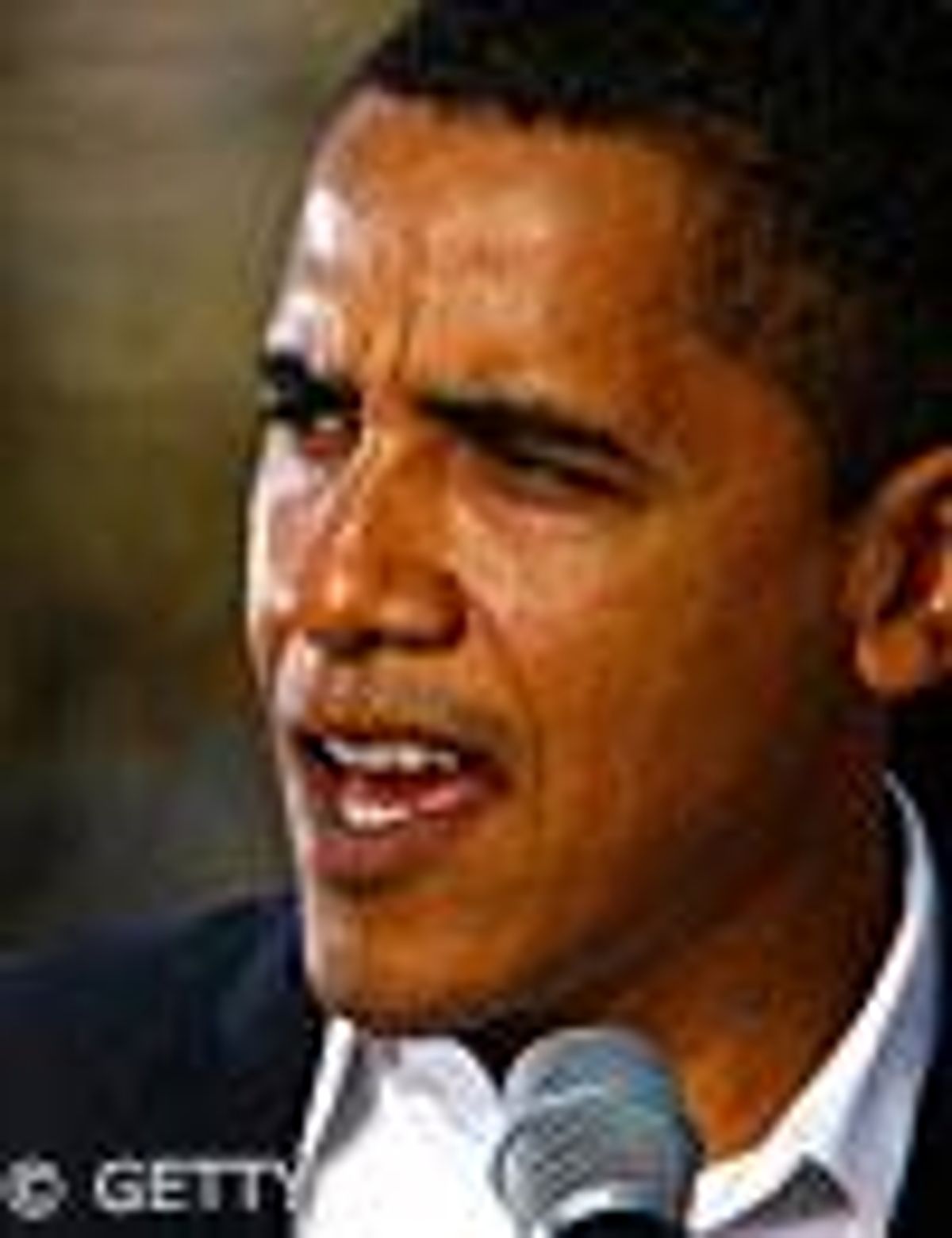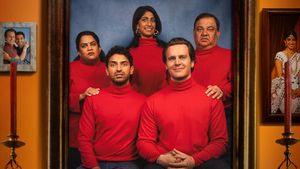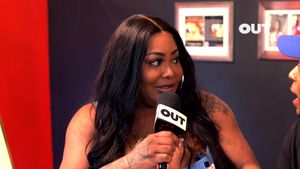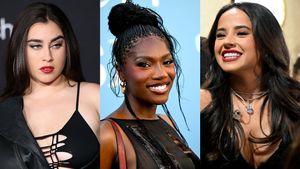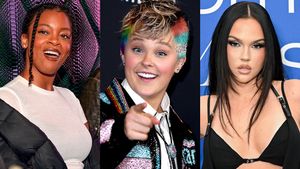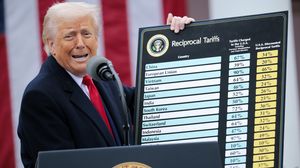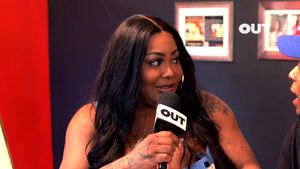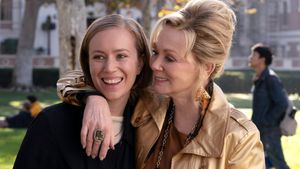When the Obama
campaign announced that Donnie McClurkin would be among
the featured singers on the presidential candidate's gospel
tour in South Carolina this weekend, it inadvertently
ventured into the void between African-American
Christians and gays and lesbians.
McClurkin, an
award-winning gospel singer who has also struggled with his
sexuality for years, is a one-man personification of the
craggy crossroads between black gays and Christians.
The fact that he has called homosexuality a
"curse" that runs against "the
intention of God" rips open the wounds of so
many gay African-Americans who have been "prayed
over" for years by family and friends who endeavor to
save them from their "shameful"
fate.
As Joe Solmonese
of the Human Rights Campaign put it once the din to pull
the controversial singer had reached a fever pitch midweek,
"There is no gospel in Donnie
McClurkin's message for gay, lesbian, bisexual, and
transgender people and their allies." There appeared
to be two choices for Obama's campaign: Keep
McClurkin on the tour and disregard the cash-laden gay
constituency that has bundled money with the best of
'em for Obama or ditch McClurkin at the expense
of sacrificing a precious bloc of votes from South
Carolina's black religious community.
But rather than
oust McClurkin, the campaign found a third way,
officially adding gay minister Andy Sidden to the tour on
Wednesday.
The gospel tour
is an apparent attempt to up Obama's numbers among a
crucial segment of black constituents that made up 47% of
South Carolina's Democratic primary voters in
2004 and among whom Obama and Hillary Clinton are
running neck and neck in recent polls.
The inclusion of
McClurkin brings two things into relief at this critical
juncture in the Obama campaign when he needs to translate
his substantial fund-raising sums into votes.
For LGBT people,
it prompts the question, Weren't Obama and, by
extension, the people who run his campaign versed enough in
the pain of the people he calls his "gay
brothers and sisters" to see the McClurkin land
mine before they rolled over it?
And can Obama
really, as he claims, create the "big tent"
movement he's been selling, where voters who
vehemently disagree on something as fundamental as
what constitutes love put aside their differences to rally
around a single candidate?
The Advocate: How did this happen? Was Mr. McClurkin vetted? Senator Obama: Obviously, not vetted to the
extent that people were aware of his attitudes with
respect to gay and lesbians, LGBT issues -- at least
not vetted as well as I would have liked to see.
Having said that,
we viewed this simply as an opportunity to have a
gospel concert as part of our overall outreach, and since he
was singing at a concert along with a number of other
artists, as opposed to being a spokesperson for us,
probably it didn't undergo the same kind of vet that
someone who was serving as a surrogate for me might
have.
Some black gay activists I've spoken to say this
doesn't make them question Obama the
senator, but it does make them question the campaign
-- do they really understand the nuances of these
issues, are they really sitting down and talking
with gay folks, because it seems like this
decision came purely through the lens of faith? Look, these kinds of issues are going to crop up
inevitably through the course of campaigns.
It's important to recognize that these are issues
that every Democratic candidate who has African-American
ministers as supporters may have to confront. It just
so happened that it popped up on the screen in this
particular instance. But I assure you, I am not the
only candidate who's got a black minister or a white
minister who's supporting them prominently who
subscribes to similar views.
Part of the
reason that we have had a faith outreach in our campaigns is
precisely because I don't think the LGBT community or
the Democratic Party is served by being hermetically
sealed from the faith community and not in dialogue
with a substantial portion of the electorate, even though
we may disagree with them.
Part of what I
have done in my campaign and in my career is be willing to
go to churches and talk to ministers and tell them exactly
what I think. And go straight at some of these issues
of homophobia that exist in the church in a way that
no other candidate has done. I believe that's
important. We can try to pretend these issues don't
exist and then be surprised when a gay marriage
amendment pops up and is surprisingly successful in a
state. I think the better strategy is to take it head on
and we've got to show up. These people of faith may
be operating in part out of unfamiliarity, or they may
be insular in terms of how they're viewing LGBT
issues, they may not understand how what they say may be
hurtful, and the only way for us to be able to communicate
that is to show up.
I know you're in a difficult position here trying
to balance these two constituencies -- but by
keeping McClurkin on the tour, didn't you
essentially choose your Christian constituency over your
gay constituency? No, I profoundly disagree with that. This is not
a situation where I have backed off my positions one
iota. You're talking to somebody who talked
about gay Americans in his convention speech in 2004, who
talked about them in his announcement speech for the
president of the United States, who talks about gay
Americans almost constantly in his stump speeches. If
there's somebody out there who's been more
consistent in including LGBT Americans in his or her
vision of what America should be, then I would be
interested in knowing who that person is.
One of the things
that always comes up in presidential campaigns is, if
you've got multiple supporters all over the place,
should the candidate then be held responsible for the
every single view of every one of his supporters? And
obviously that's not possible. And if I start playing
that game, then it will be very difficult for me to do what
I think I can do best, which is bring the country
together.
Look, when I
went to Rick Warren's church at Saddleback, he was
under enormous heat because, among his constituency,
my position on LGBT issues and my position on abortion
is anathema. So his position could have been, we will
not have Obama speak because he does not subscribe to our
views on these two issues. To his credit, he allowed
me to speak, in his church, from his pulpit, to 2,000
evangelicals. And I didn't trim my remarks, I
specifically told them, "I think you guys are wrong
when it comes to issues like condom
distribution." And by the way, I got a standing
ovation.
My views on gay
issues and on choice issues are well-known. I did not
trim my sails in the conversation I had with them. And I
think as a consequence of appearances like that, I am
helping to encourage understanding that will
ultimately strengthen the cause of LGBT rights.
At some point, if
we are going to have a conversation on these issues,
what I expect to be judged by in the LGBT community is, have
I been a strong advocate, have I been a forceful
advocate, have I avoided these issues in any way. And
If I have not, then that's how I expect to be
judged.
Does this tour mark a turning point in the campaign where
you're more focused on wooing voters than fund-raising? I recognize why this has attracted attention in
the LGBT community, [but] in terms of our overall
campaign strategy, it's just one among multiple
things that we've been doing in South Carolina.
People in South Carolina listen to gospel music, so we
have organized some gospel concerts. Black folks in
South Carolina frequent barbershops and beauty shops, so
we've had a barbershop-beauty shop
strategy. And by the way, I can't vouch for the
opinions of every barbershop and beauty shop owner in South
Carolina. But that is where people go, and so
we've organized a particular way of reaching
out to African-American voters in the barbershops and beauty
shops. So this is just part of an ongoing strategy with
multiple parts.
You have intimated that Senator Clinton is perhaps
declaring victory too soon. Looking at the
polling, things don't look good for you in New
Hampshire, Iowa's iffy, South Carolina doesn't
look great... If you don't win one of those three
states, where does your campaign go from there? Well, I wouldn't agree with the
characterization -- we are basically tied in Iowa,
we're down in New Hampshire, and in South Carolina
it's highly competitive. We have always known
that in order to do well we've got to do well
in the early states, and we expect to do well in the early
states because that's where we're
focusing our attention. We never expected to be able
to compete in national polls two months before the first
vote was cast because we're running against the
dominant brand name in the Democratic Party over the
last 20 years.
But for your
audience, your readership, the one thing that I do want to
make sure is included in this article is that on issues from
"don't ask, don't tell" to
DOMA to the gay marriage amendment to the human rights
ordinance in Illinois that is the equivalent of what
we've been attempting to do at the federal
level and that I was a chief cosponsor of and then
passed -- there has not been a stronger and more consistent
advocate on LGBT issues than I have been.
And it is
interesting to me and obviously speaks to the greater
outreach that we have to do that that isn't a
greater source of interest and pride on the part of
the LGBT community.
